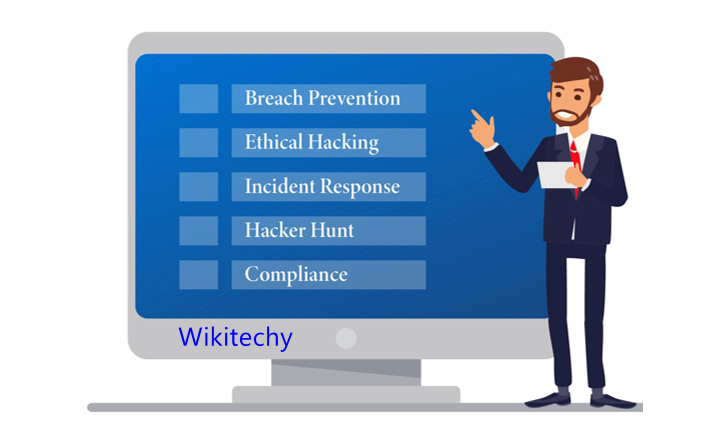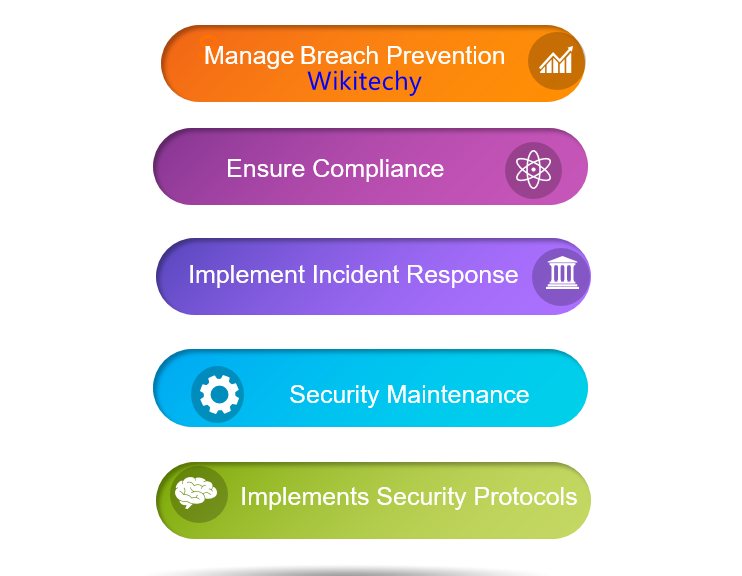Cyber Security Roles and Responsibilities - Role of Cyber Security - Cyber Security Tutorial
Roles of the Cyber Security Professional

- The Cyber Security professionals are responsible for protecting IT infrastructure, edge devices, networks, and data.
- More granularly, they are responsible for preventing Data Breaches and Monitoring and reacting to Attacks.
- Many have backgrounds as :
- Programmers
- Systems
- Network Administrators,
- Math and Statistics.
- Those skills are undoubtedly relevant to the role of an IT security professional
- Equally as critical are the things that aren’t necessarily things that can be taught – Critical thinking, Curiosity, and a Passion for learning and research.
- People from all kinds of backgrounds possess those qualities, so companies shouldn’t limit themselves to a narrow pool of candidates.
- Further, hackers are creative by nature. To outsmart them, security pros need to be, as well.
Responsibilities of the Cyber Security Professional

- IT security professionals need to stay up to date with the latest tactics hackers are employing in the field.
- In addition to the high-level responsibilities some specific duties IT security teams do Which includes :
- Set and implement user access controls and identity and access management systems
- Monitor network and application performance to identify and irregular activity
- Perform regular audits to ensure security practices are compliant
- Deploy endpoint detection and prevention tools to thwart malicious hacks
- Set up patch management systems to update applications automatically
- Implement comprehensive vulnerability management systems across all assets on-premises and in the cloud
- Work with IT operations to set up a shared disaster recovery/business continuity plan
- Work with HR and/or team leads to educate employees on how to identify suspicious activity
Skills for Cyber Security Professionals
Successful IT security professionals need more than technical skills. To truly advance in the field, these experts should be:
Strategists
- Cyber Security professionals should be able to proactively implement security measures and controls within organizations, weighing the consequences of any action.
- Advanced security protocols require tactical and strategic evaluations of workflows, dependencies, budgets, and resources.
- Because new methods to hack information are continually developing, professionals must be a step ahead, studying how hackers enter networks and much more Esculation Attacks
Communicators
- Management and communication skills ensure effective coordination with teams and clients.
- Technology and security touch every professional in an organization.
- Security professionals must interact in meaningful ways by training and empowering employees to help protect systems.
Lifelong Learners
- Another must-have skill is technical competence.
- With the pace of development in IT security, this means ongoing research, training, and earning standard certifications.
- These professionals should constantly be learning new advanced technology skills to be able to resolve complex security issues.
